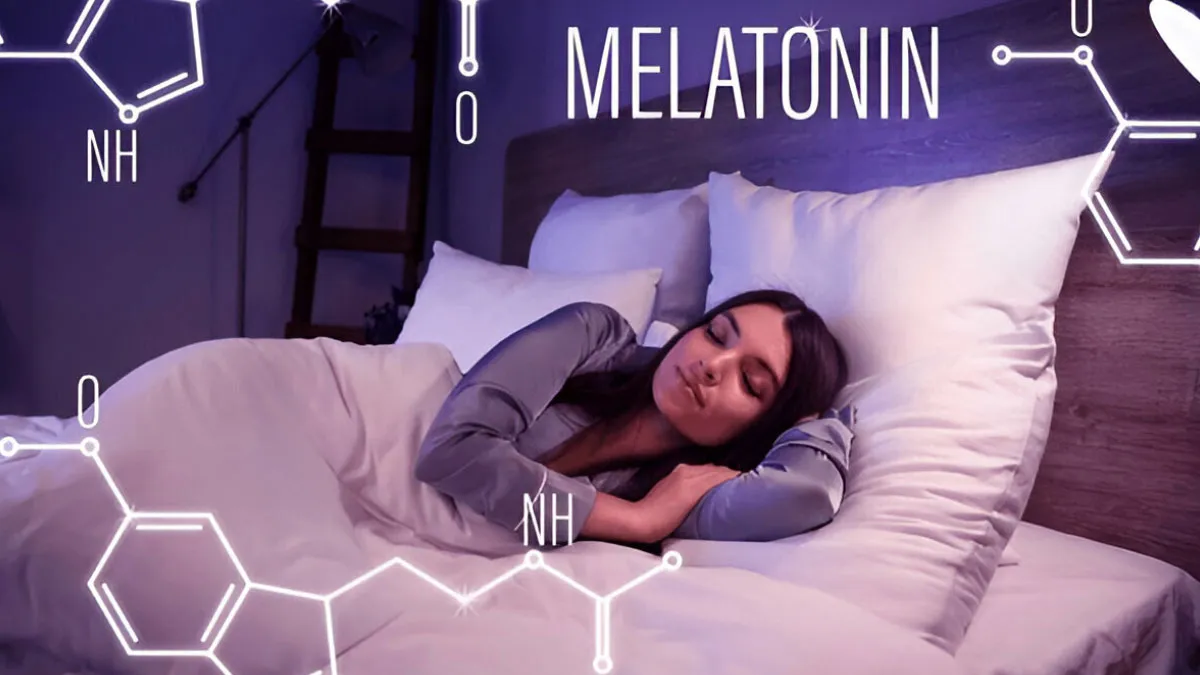
Sleep disturbances are common in modern society, and melatonin is a popular go-to supplement for individuals having difficulty sleeping. However, if you had a cup of coffee or other caffeinated beverage earlier in the day, do you go get your melatonin to assist you in sleeping?
Table of Content:-
We reached out to our expert, Ms Rashi Chahal, Clinical Nutritionist, Fortis La Femme GK, Support Specialties, Dietetics and Clinical Nutrition, and she said no, one shouldn’t. Read ahead to know why and everything she shared with us.
Science Behind Caffeine
Caffeine is a strong stimulant. It blocks adenosine, a sleepiness-enhancing chemical in the brain, and increases metabolism and stimulation of the nervous system. In effect, caffeine makes the body stay awake and active. “Depending on your level of sensitivity, caffeine stays in your system four to eight hours, occasionally longer. That's why that late-afternoon coffee can interfere with your sleep many hours later,” Chahal explained.
Also Read: Cough Syrup Controversy: Can It Lead to Deaths? What We Should Know

How Melatonin Works
Melatonin is a naturally occurring chemical hormone that controls your sleep-wake cycle. Taking melatonin signals to your body that it's time to relax and prepare for sleep. But the effectiveness of melatonin depends upon your body being rested and ready for sleep.
Why Taking Melatonin After Caffeine Doesn't Work
According to Chahal, melatonin and caffeine have opposite effects. “While melatonin relaxes your nerves and gets you ready for bed, caffeine boosts your metabolism and stimulates your nervous system. Consuming melatonin after caffeine is, in turn is like a war between stimulation and rest.The outcome is that the body might find it difficult to react to melatonin, resulting in:
- Delayed sleep onset: You can still feel awake and alert despite taking melatonin.
- Poorer sleep quality: The sleep may be more superficial, leaving you feeling less rejuvenated.
- Restlessness and night awakenings: The residual effects of caffeine can interfere with staying asleep during the night.
Also Read: WHO Issues Global Alert After Cough Syrup Deaths in India, Here's What We Know

What Does A Nutritionist Recommend
To enjoy the full benefits of melatonin's sleep-inducing properties, Chahal recommends a few easy habits. These include:
- Time your caffeine carefully: Do not have coffee or caffeinated beverages at least six to eight hours before sleep. Even if you don't believe you're sensitive to caffeine, it can still disrupt your natural sleep phase.
- Take melatonin intelligently: Take melatonin only when your body is naturally relaxing, typically 30 to 60 minutes before your desired sleep time.
- Establish a sleep-conducive environment: Low lights, less screen time, and regular bedtime habits. These habits allow your body to react more positively to melatonin.
- Prioritise changing your lifestyle: No late-night snacks, less alcohol consumption, and using relaxation tactics such as deep breathing or light stretching to aid in sleeping naturally.
- Talk to a medical expert: If you take melatonin regularly or have persistent sleep problems, your physician can advise on the proper amount and when to take it.
Bottomline
Experts caution against consumption of melatonin following consumption of caffeine since the stimulating effects work against melatonin's sleep-inducing effect. Melatonin is safe, but ingesting it shortly after drinking coffee or other beverages containing caffeine will have you rolling and turning rather than sleeping well. To ensure the best sleeping, space out caffeine consumption and melatonin administration by several hours, practice good sleep hygiene, and allow your body's natural rhythm to dictate your sleep.
FAQs
FAQ
1. How much time should I wait after caffeine to take melatonin?
At least six to eight hours, depending on your sensitivity to caffeine.2. Will it hurt me if I take melatonin after drinking coffee?
It's safe, but it won't get you to sleep and might make you restless.3. Can caffeine eliminate melatonin altogether?
Caffeine won't eliminate melatonin, but it will weaken its effect tremendously, making sleep more difficult to attain.
How we keep this article up to date:
We work with experts and keep a close eye on the latest in health and wellness. Whenever there is a new research or helpful information, we update our articles with accurate and useful advice.
Current Version
Oct 14, 2025 16:53 IST
Modified By : Tanya SrivastavaOct 14, 2025 16:53 IST
Published By : Tanya Srivastava